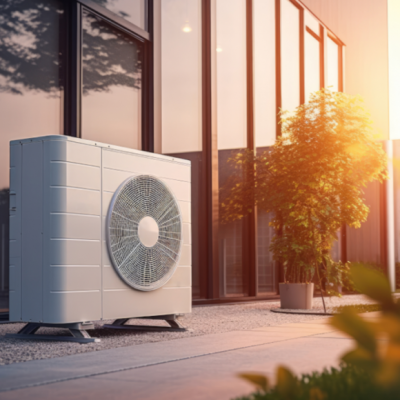Revolutionary Cooling Device Uses Heat Instead of Electricity and Chemicals
As global temperatures continue to rise, air conditioning units are becoming increasingly necessary. However, these units have two major drawbacks: they require a lot of electricity to operate and often use harmful refrigerants. A cooling device that doesn’t require electricity, chemicals, or any other consumables to operate, but instead only needs heat to cool, would be revolutionary. Dutch startup SoundEnergy has achieved just that with their highly complex air conditioning unit that produces cold air using thermoacoustics.
The technology used by SoundEnergy is similar to that of a Stirling engine, which converts heat into mechanical energy. However, instead of converting heat into motion, the company’s air conditioning unit converts it into sound waves. These waves are then amplified in a closed, pressurized loop, before the mechanical energy is used to produce cold air. The process works by dispersing the heat of the elementary particles through the sound waves.
While the concept of an air conditioning unit that doesn’t require electricity or chemicals may seem utopian, SoundEnergy has already sold one unit for €45,000 to a government and another is in operation in Dubai. The company will also be showcasing their device at the upcoming Hannover Messe. If SoundEnergy can lower the high purchase price and make the unit practical for households, it could revolutionize the energy industry and significantly reduce global energy consumption, benefiting the environment.
In conclusion, SoundEnergy’s innovative air conditioning unit is a game-changer in the energy industry. By using heat instead of electricity and chemicals, the device has the potential to significantly reduce energy consumption and benefit the environment. While the high purchase price may be a barrier for some, the company’s success in selling units to governments and businesses is a promising sign for the future of this technology.










